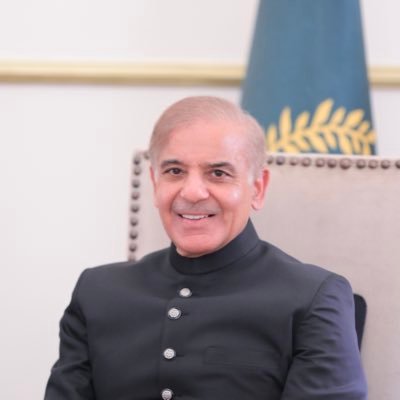New Delhi: Pakistan Prime Minister Shehbaz Sharif yesterday made it a point to tweet on the 3rd anniversary of revocation of Article 370 in Jammu and Kashmir, ranting the same old misleading and false stuff.
It was in tune with the customary practice of the Pakistani leaders who go overboard in trying to “express solidarity with Kashmiris”, irrespective of whether it is wanted or not.
As the leader of a sovereign country, Sharif can’t be denied a right to waste his time and energy on useless things.
However, it would have been much better for him to focus on the pressing internal matters of Pakistan at a time when the country is on the brink of a collapse due to acute economic crisis.
Pakistan has virtually gone bankrupt and has to approach other countries and global financial bodies with a begging bowl.
Its Finance Minister Miftah Ismail even made such a confession today while addressing Karachi Chamber of Commerce today.
He said felt “ashamed” when he had to meet the ministers of other countries and “ask them for loans”.
“We have to go to Saudi Arabia and UAE and ask them to deal with the IMF (International Monetary Fund),” the Pakistan Finance Minister said.
While talking about the extremely bad situation that Pakistan is facing on the economic front, he acknowledged that the country could hardly sell any product to the outside world and was heavily dependent on imports.
“If we do not have products to sell to the world, we should not buy things from it either,” he said, advising the countrymen to curb the tendency of importing items.
The Finance Minister said Pakistan’s imports last year stood at $80 billion while its exports were a mere $31bn.
The country’s current account deficit was $17.5bn while the trade deficit, after subtracting the remittances, stood at $18bn, he added.
Ismail asked fellow Pakistanis to “live within their means” instead of asking for loans.“
A couple of months back, another Federal Minister Ahsan Iqbal urged the people of Pakistan to reduce consumption of tea so that the import bill could be reduced.
“I appeal to the nation to cut down their daily consumption of tea to one or two cups because we use our loans to import it,” Iqbal, Federal Minister for Planning, said after a meeting.
He had also suggested that shops should be shut by 8.30 pm every day to save electricity.
The country is also witnessing huge increases in fuel prices, along with shortages in many places from time to time.
Prices of essential items, like food products, have also been recording huge spike.
The economic situation has become acutely worrisome for Pakistan because low exports and high imports have led to a constant decline in the country’s foreign exchange reserves.
According to official figures, Pakistan’s foreign exchange reserves were a meagre $10 billion in the June, dropping substantially from $16 billion in February.
The country has been pleading with the IMF to restart a $6 billion bailout programme, which was negotiated in 2019 but was subsequently put on hold in view of Pakistan’s precarious financial situation.
Experts opine that Pakistan has reached this dire situation because of its ill-directional policies and approach.
If we look at the path that the successive governments, driven by the all-powerful Army, in Pakistan have taken over the last decades, there is hardly any constructive task.
Most of the focus has been on attempts to destabilise neighbouring countries – India and Afghanistan – and promoting terrorism for export to the world.
Many Pakistanis recognise the fact that their governments have led the country on the wrong path, particularly when they draw a comparison with India.
“Both India and Pakistan got independence on the same day 75 years back. Today, you see where India stands and where Pakistan stands,” said a Pakistani journalist.
His assessment is that India was lucky that democracy prospered there while Pakistan fell into the vicious cycles of Military rules and dictatorships, even through the so-called ‘elected governments’.
India developed world class educational institutions, which produced brilliant minds who went on to become the CEOs of top global companies.
On the other hand, Pakistan focussed on creating nurseries of terrorism and extremism.
While India has been exporting world class minds, services and goods, Pakistan is known for exporting terrorism and terrorists.
It is because of this destructive path adopted by Pakistan that it stands isolated today in the world, with even its traditional ally — the US — giving it a cold shoulder.
Therefore, it is time for the leadership in Pakistan to correct its course.
It is time for the Pakistani establishment and its leaders to stop ranting about Jammu and Kashmir and rather focus on saving own country from potential implosion, a trailer of which we just saw in Sri Lanka.
The Pakistani establishment and leaders needs to understand that expressing “solidarity with Kashmiris” won’t save it from a disaster it is headed for.








